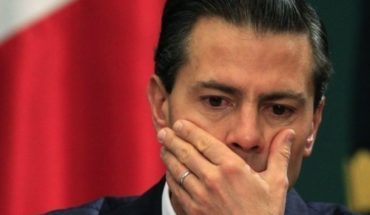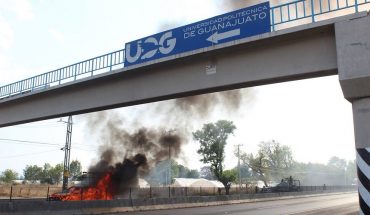The current constitution has an illegitimate origin: it prevailed a minority principle based on force, because of the predominance of a sector that exercised the constituent power when the rights of freedom were violated both c ivil as a politician. The current constitutional framework, reformed in 1989 and subsequent opportunities, prevented structural changes in the enthroned neoliberal model, through various mechanisms. Crucial were the stipulations of fundamental rights and the organic laws enshrined in the constitution: the convergence between its ideological positioning with respect to the status quo and the provisions regarding its amendments, gave it a singular rigidity. Although the mechanism of organic laws is not necessarily problematic on its own, it stands out in Chile for its extreme scope, in combination with the requirement of a qualified majority for its reform and its neoliberal formulation. By severely affecting effective and potential policy-making capacity, this rigidity helped to forge a crisis of representation, which over the past decade manifested itself in a collapse of political electoral participation and mass protests in educational, labour, health and pension matters (Aldunate L.; Atria, F.; Arato, A; Heiss, C.; Tsebelis, G; Rivera, J; Rivera, S.).
When the most serious political crisis since the transition to democracy erupted in October 2019, this crisis of political representation manifested itself with unusual force, in streets and squares of the country filled with no speeches or speakers, under slogans relating to the equality and dignity, while also the waves of anomy were erected in the destruction of public property, rants, fires and innumerable vandalism. Any government offer, such as the social agenda, quickly became wet paper, by the hand of guanacos, tear gas and pellets, and the inability of the political system, devoid of a compass to face the depth of what was at stake. Increasingly, the situation towards an ignounous and dangerous political misorder, it was nevertheless possible to build the Agreement for Social Peace and the new constitution, which should allow the language of the street to be channelled towards a commitment to create a new social coexistence in Chile enshrined constitutionally, reflecting citizen aspirations that challenge inequality, which aspire to adequate levels of well-being and dignity in the field of policies and in the social bond.
Possibly the rigidity of the existing constitutional framework and its effectiveness in preventing structural changes, which has gone hand in hand with the above mechanisms and the stipulation of qualified majorities, will now contribute to some people’s suspicions quorum agreed to approve the rules of the new Constitution. In those terms, it is necessary to illuminate that to adversely extrapolate to the quorum the new constituent power of the deputy of qualified majorities that have been proper to the minority principle of the current constitution is unfounded legal or political. In this sense, constitutionalists have suggested that in the case of the contents of a new constitution, two-thirds on the contrary favour the broad political agreement, exclude severments from the proponents of the current constitution and strengthens the discussion the new constitution has been approved, by giving way to an ordinary legislative process of politics set up from the simple majority rule, which allows the current preferences of the Chilean electorate to be adequately reflected in parliament and contribute to overcoming the crisis of representation (Rivera S.).
Ordinary law and constitutional law, among several aspects, are precisely distinguished by the threshold of votes by which the rules are adopted. On the contrary, in the absence of this unique threshold, if constitutional law were to be a menu at the discretion of conjunctural majorities that may be succeeded in parliament or in constituent bodies, their spirit and effectiveness would continue, and thus the democratic regulation of the basic rules of political coexistence. As the jurist Luigi Ferrajoli points out, it is not true that in a democracy the power of the people in a majority is the only legitimation of decisions and is thus unlimited, since the contents of their exercise must be subject to the rule of law , which does not admit the existence of absolute powers. For a system to be democratic, he says, the majority is required to have the power to suppress the rights of the minority, since substantial rules discipline the meaning of the rules produced, proposing that democracy be articulated in dimensions corresponding to political, civil, freedom and social rights. Hence what he calls the “natural rigidity” of the Constitution, since in its substantial part the holders of fundamental rights established theremust be of each and every citizen: being the rights of each and every one, they are not suppressible or reducible by the most, since most cannot dispose of what does not belong to them.
Contributing to overcoming the crisis of representation in Chile will undoubtedly involve discussions to reach agreements on how social rights should be enshrined in the magna letter. On the one hand, this will be expressed in the dismantling of the stipulations of fundamental rights that shielded against them in the old constitution; is the case of the right to education that ended up being replaced or subordinated within the right to private property and detailed corresponding protection resources: freedom of education ended up taking precedence over the specification of the right to strengthened the inequality of the system. On the other hand, a crucial aspect will concern the positive formulation of social rights. Constitutional support for rights, however, should consider a reflection on how this involves a transfer to the judiciary and, in general, on how it influences the expansion or limitation of other powers, as Gargarella warns, and how eminently legal and reductionist responses should be avoided to address problems and demands whose solution is fundamentally of nature. Given the rich Latin American experience of the chiaroscuros of the judicialization of rights, even in terms of the accentuation of inequality that may happen, this reveals that the Constitution cannot be the ultimate handle of social rights, but the anchoring of these rights requires profound reforms of systems that are now delegitimized by inequality, in the field of education, health and pensions. In Chile a red thread has crossed and crosses the disaffected and rejected of these systems: their articulation through profit.
The content poured into this opinion column is the sole responsibility of its author, and does not necessarily reflect the editorial line or position of El Mostrador.





